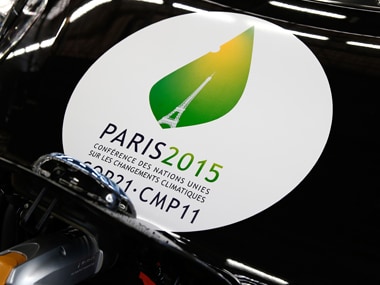By Dinesh C Sharma The two-week-long negotiations for an international agreement on climate change have entered the crucial final round in Paris on Friday. In all likelihood, the talks will spill into Friday night and the outcome would be announced only on Saturday morning local time in the French capital.[caption id=“attachment_2525190” align=“alignleft” width=“380”]  Can climate summit in Paris clinch a deal? AP[/caption] Those expecting a lasting solution to the air pollution in New Delhi or an international compensation package for ‘loss and damage’ caused by extreme weather events such as in Chennai from the Paris deal would be disappointed. Far from coming up with a hard-hitting plan to reduce greenhouse gas emissions and a package of finance and technology for developing countries, “Paris Outcome” (as the agreement has been named formally) is going to be a watered down deal. The number of square brackets – which denote words still under negotiation – has come down drastically in the latest draft. As of now, there is no agreement on two sticky issues – differentiated action on part of developing countries and climate finance – emphasised by India and other developing countries. The draft deal acknowledges the need to hold the increase in the global average temperature to well below 2 degree Celsius above pre-industrial levels and also the need for pursuing efforts to limit the temperature increase to 1.5 degree. However, it also says that the pledges made by different countries in the form of Intended Nationally Determined Contributions (INDCs) don’t fall in the 2 degree scenario. Therefore, much more effort will be needed above the INDCs in the period after 2025 and 2030 in order to hold the temperature rise to below 2 degree. The draft, therefore, suggests revision of INDCs every five years – a point on which there is no consensus as yet. Another controversial clause in the draft relates to a proposed mechanism to ensure “clarity, transparency and understanding” about national emission reduction goals and methodologies for data collection on greenhouse gas emissions. In other words, a policing mechanism has been proposed. This has been talked about in different ways in previous rounds too and has been opposed by India and other countries. While INDCs were proposed as a voluntary action by all countries, now the effort seems to be to convert these voluntary pledges into semi-legally binding obligations. The two clauses about revising INDCs and mechanism to monitor them are meant for this. It also means that developed countries want to use INDCs as a tool to thwart any legally binding emission reduction targets as set in the Kyoto Protocol. If Paris Outcome is adopted in its present form, then countries would be bound by their INDCs and governed by a set of new rules. It would also bring less polluting countries like India on par with leading polluters like America and European Union. This would be against the spirit of ‘common but differentiated responsibility’ on which the UN Framework Convention on Climate Change rests. On mobilising finances for adaptation, transfer of technology to developing countries and capacity building, the draft has nothing new to offer. Earlier finance mechanisms such as the Green Climate Fund and Global Environment Facility have made little progress, with major polluters like the US hardly providing any money despite pledging billions of dollars. Projects worth less than $200 million have been sanctioned by GCF to developing countries for their mitigation efforts. Clearly, there is a huge gap between pledges and action when it comes to finance. On technology transfer too, the draft agreement is vague. The final round of talks is usually very tricky with negotiators from different blocs and key players trying to veer the deal in their favour. Paris is not going to be different. So don’t be surprised if the outcome reads something different on Saturday morning.
Those expecting a lasting solution to the air pollution in New Delhi or an international compensation package for ‘loss and damage’ caused by extreme weather events such as in Chennai from the Paris deal would be disappointed.
Advertisement
End of Article
Written by FP Archives
see more


)

)
)
)
)
)
)
)
)



